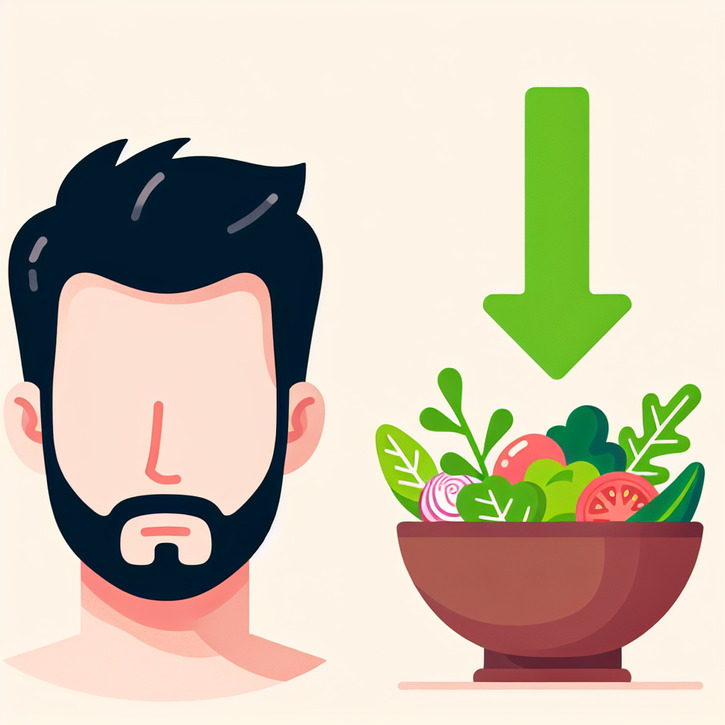The Role of Malnutrition in Hair Loss: What You Should Know

Hair Loss and Malnutrition: What’s the Deal?
Hair doesn’t just crown our heads; it’s a direct mirror of what’s going on inside our bodies. And guess what? Your diet plays a huge role in how healthy those locks are. When your body isn’t getting the nutrients it needs, hair loss can be one of the first signs something’s off. Think of your hair as a red flag – if it’s acting up, there might be something deeper to address.Malnutrition and Hair Loss: A Closer Look
Now, malnutrition doesn’t just mean starvation. It also includes not getting enough of specific nutrients from your diet. When your body is missing key vitamins or minerals, it has to prioritize what’s most important – like keeping your heart beating instead of worrying about hair growth. That’s why hair loss often serves as a heads-up that something’s not quite right.Common Nutrients Your Hair Needs (And What Happens Without Them)
Let’s talk shop: iron, protein, vitamin D, and B12 are like the MVPs of hair health. Each has its own role to play, and if one’s missing in action, your hair can suffer big time. For example, without enough iron, your follicles might not get the oxygen they need to stay strong. And if you’re low on protein, your body might say “bye-bye” to hair production altogether. So, it’s not just about eating – it’s about eating right.Malnutrition Hair Loss: What’s Really Going On?
The Science of Why Nutrient Gaps Lead to Thinning
Hair grows in phases: anagen (growth), catagen (transition), and telogen (rest). But when malnutrition hits, it can throw this cycle into chaos. Your hair might get pushed into the resting phase way too early, which means you’ll start shedding a few months later. It’s like your body hitting pause on hair growth until things balance out.How Malnutrition Affects Your Scalp
A healthy scalp is the foundation of great hair. But when nutrients are lacking, that foundation can crumble. Dryness, flakiness, and even dandruff can pop up, making it harder for your hair to thrive. It’s a double whammy – not only does your body struggle to grow hair, but the environment where it grows is less than ideal.The Hidden Hormonal Connection
Nutrient deficiencies don’t just mess with your hair; they can throw your hormones out of whack too. Estrogen, progesterone, and testosterone all play a role in hair growth, and if they’re off-kilter because of poor nutrition, it’s bad news for your locks. For example, low iron levels can tank estrogen production, leading to hormonal imbalances that make hair loss worse.Spotting the Signs: Is It Malnutrition-Related Hair Loss?
When Your Part Gets Wider
If you’re noticing more shedding than usual or your part is expanding like it’s trying to take over your head, malnutrition could be to blame. This kind of hair loss usually creeps up slowly, so it might take a while before you even realize something’s wrong.Brittle Hair: A Warning Sign
Dry and brittle hair isn’t just a styling nightmare – it’s often a sign that your diet’s missing some key players. If your strands lack their usual bounce or break easily, it could be a clue that you’re not getting enough essential nutrients.Dry Scalp, Dandruff, and Hair Loss
A malnourished scalp isn’t just uncomfortable; it can also lead to more hair loss over time. If your scalp’s dry, flaky, or covered in dandruff, it might be a sign that you’re not fueling your body properly.Preventing Malnutrition Hair Loss: What You Can Do
Nutrients Your Hair Won’t Say No To
The solution? Focus on getting enough iron, protein, vitamin D, and B12. These nutrients are like magic for your hair – they help keep follicles healthy, oxygen flowing, and cells growing.Protein-Rich Foods to Add to Your Plate
Think eggs, Greek yogurt, lentils, and tofu. Protein isn’t just for gym-goers; it’s a must-have for keeping your hair strong and thick. Make these foods regulars on your plate, and you’ll be doing your locks a huge favor.Vitamins and Minerals: The Building Blocks of Healthy Hair
Vitamins and minerals aren’t just buzzwords – they’re essential for hair health. A balanced diet with plenty of fruits, veggies, and whole grains can give your body the fuel it needs to keep your hair looking its best.Tackling Malnutrition-Related Hair Loss: Your Next Steps
When to Call in the Pros
If you’re noticing signs of malnutrition-related hair loss, don’t go it alone. A healthcare professional can run tests to identify any deficiencies and help you get back on track.Supplements: A Quick Fix?
In some cases, supplements like iron or vitamin D might be the answer. But before diving in, make sure to chat with a doctor – they’ll know what’s best for your situation.Lifestyle Changes for Long-Term Hair Health
Hair loss doesn’t happen overnight, and neither does preventing it. Making sustainable changes like eating well, managing stress, staying active, and getting enough sleep can all help keep malnutrition-related hair loss at bay.Final Thoughts: Why Nutrition Matters More Than You Think
Nutrition: The First Step to Healthier Hair
If you’re serious about fighting hair loss, start with your plate. Fixing nutrient gaps isn’t just about stopping shedding – it’s about giving your hair the best chance to grow strong and healthy again.Take Control of Your Hair Health
Your diet has a huge impact on how your hair looks and feels. By making smart choices and getting the nutrients you need, you can take charge of your hair health and see real results over time.Last Word: Don’t Ignore the Signs
If you’re dealing with hair loss, don’t brush it off as “just a phase.” Take action by looking at what you’re eating and talking to a healthcare professional. Remember – proper nutrition is the first step toward healthier hair. So, let’s get cooking!Why The Ancient Samurai Warriors Never Lost Their Hair…

guaranteed to work for any men or women out there...
Watch now






